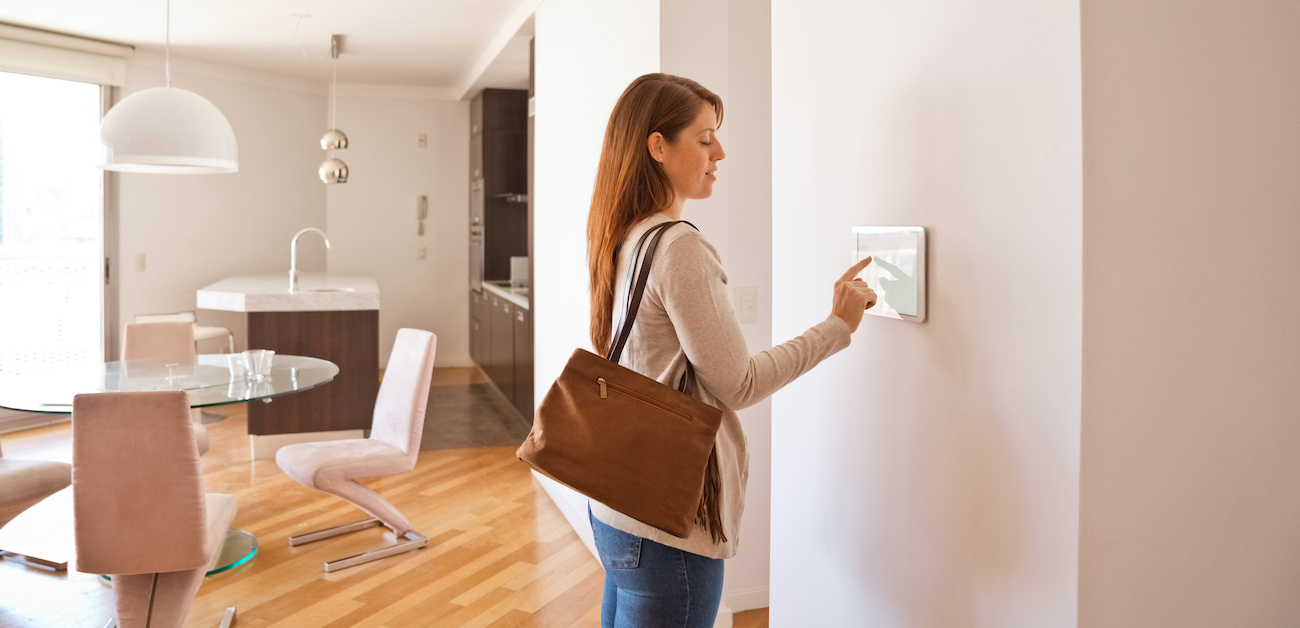
Smart switches are a great option to control a home’s lighting with your favorite voice assistant or through an app on your phone. But which smart switch should you buy? The answer depends on a number of different factors, including wiring in the home, existing smart products, types of bulbs it is controlling, the number of switches you intend on installing, and budget.
Each switch communicates with the home’s network either over Wi-Fi or through a hub, such as SmartThings via Z-Wave, Zigbee, or a proprietary bridge such as Lutron. While Wi-Fi may seem like the most attractive option, adding too many devices to a network will cause it to slow down. If you plan to replace a lot of switches, it’s better to look at options that require a hub. Wi-Fi switches also require a white neutral wire in the switch box, which may not be an option in older homes.
Knowing what’s available in smart-home technology is a value-add for agents selling new and existing homes. Check out more articles from my Ultimate Smart Home series.
- Kitchens
- Bedrooms
- Controls
- Locks
- Wireless Outdoor Security Cameras
- 5 Devices That Save Money
- Smart-Home Technology for Aging in Place
- DIY Home Security Systems and Sensors
- New Construction
- Home Office
- On a Budget
- Bathroom Tech
- Video Doorbell Showdown
- DIY vs. Professional Install
- Light Strips
Basically, every smart switch available on the market will connect to a voice assistant in one way or another, but it makes sense to stick with one brand throughout a home so that the homeowners can access all lighting within the same app. With a Lutron Pro Bridge or any of the Z-Wave or Zigbee switches, you will be able to connect to a central home hub and create automations across other devices, such as door and motion sensors. Inovelli Red Series switches and dimmers allow homeowners to create multiple scenes by connecting additional devices to a switch. For example, a single click could turn on an outside light, whereas a double click would turn on the deck lights, and holding the switch down could shut off all exterior lights. These switches also have a notification light that can be programmed to display the status of other devices. My wife and I use this by our patio door to alert us if we’ve left the fence gate open or if the security system is armed prior to opening the door to let the dogs out in our backyard.
For lights that are controlled with multiple switches, you’ll want to check the box or manufacture’s website to determine how to correctly wire the switches and which add-on switch is required. Some smart switches will work with an existing “dumb” switch in the secondary position, otherwise, they will require an add-on switch, a second switch, or in the case of Lutron, a simple Pico remote. The homeowner should pay attention to the instructions in the box and make sure the power is turned off. If you’re unsure of what you’re doing, it’s best to hire a professional electrician.
Prices for smart switches vary. Affordable Wi-Fi devices from Treatlife start at $30 for a two pack on Amazon. The popular Lutron Caseta line runs about $50 a switch (available at Home Depot, Lowes, Menards, and Amazon). There’s also the Brilliant Control, which features a color screen and connects with a thermostat, speakers, a Ring doorbell, and door locks, and it even has voice assistants built in—starting at $299.
Rooms with smart bulbs require a unique solution as they require constant power to be controlled remotely. If a guest turns the light off at the switch, the homeowner won’t be able to turn it back on via the app. Recently manufactures have recognized this problem and offer smart switches that work for these situations. C by GE switches connect directly to their compatible smart bulbs, whereas switches such as Inovelli and Brilliant Control can be programmed to always be on and act as a button to control any other switch or bulb in the house. Lutron has partnered with Philips Hue on the Aurora dimmer, which installs right over your existing switch and can control Hue bulbs.
No matter what budget or situation, there are a number of great smart switch options. A homeowner shouldn’t feel like they need to replace every switch in a house. I recommend starting with the most commonly used switches, such as in the bedroom, kitchen, and family room, and expand from there as your budget allows.
